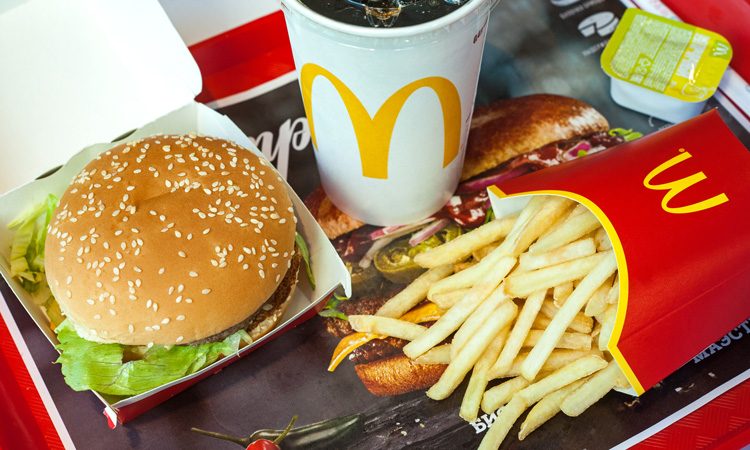McDonald’s joins the plant revolution
- Like
- Digg
- Del
- Tumblr
- VKontakte
- Buffer
- Love This
- Odnoklassniki
- Meneame
- Blogger
- Amazon
- Yahoo Mail
- Gmail
- AOL
- Newsvine
- HackerNews
- Evernote
- MySpace
- Mail.ru
- Viadeo
- Line
- Comments
- Yummly
- SMS
- Viber
- Telegram
- Subscribe
- Skype
- Facebook Messenger
- Kakao
- LiveJournal
- Yammer
- Edgar
- Fintel
- Mix
- Instapaper
- Copy Link
Posted: 1 October 2019 | Dr. Sylvain Charlebois | No comments yet
Dr Sylvain Charlebois, from Dalhousie University, takes a look at how and why McDonald’s is entering the plant-based market with its pilot of the ‘PLT sandwich.’


When McDonald’s makes a move, everyone pays attention. That is just the way things are in the food service industry. For months, rumours were swirling around McDonald’s and when they would launch a plant-based product. We now know McDonald’s will enter the plant-based game by running a pilot in Ontario, Canada. The pilot project will last 12 weeks and is a global first for McDonald’s.
This past summer, McDonald’s heavily promoted the virtues of beef and animal proteins, up-selling the authentic and natural attributes of meat. Many noticed, and believed McDonald’s would never add a plant-based product to its menu.
But now McDonald’s will start serving a Plant-Lettuce-Tomato (promoted as a PLT) sandwich at 28 restaurants in southwestern Ontario, as well as locations in London and Sarnia. It will cost $6.49, which is almost the same price as the Quarter Pounder. This price point could suggest that McDonald’s is reluctant to add a plant-based product to its menu. But the product is expected to be an improvement of the 2003 “veggie burger” which retailed for $1.99.
This time, the company’s commitment appears to be different. The plant-based ethos is in a different place today, and McDonald’s knows it. The product, supplied by Beyond Meat, was especially developed for McDonald’s, to match consumers’ more contemporary expectations. The new protein patty will be cooked on the same grills as beef burgers, chicken and eggs. While this could be an issue for vegans and vegetarians, that is not the market McDonald’s is aiming for.
So the plant-based invasion continues, and even for McDonald’s, market data is too compelling to ignore. The fact that Canadian icon Tim Hortons pulled back from its Beyond Meat breakfast sandwich was not surprising, as proteins were never part of the chain’s core business. For protein-focused outlets, stakes are different. Like A&W, Subway and Burger King, McDonald’s is now protein hedging with its menu. Providing choice to consumers makes business sense. With this pilot, McDonald’s is recognising that a larger assortment of protein products on its menu will increase the likelihood of purchases. Some suggest that by 2025, more than 10 million Canadians will be deliberately limiting the amount of meat they consume. That number alone is enough to warrant a pilot product, but the decision will not come without some criticism…just ask A&W.
As A&W became the true ambassador for Beyond Meat and plant-based burgers in Canada, it also became the target of anger and a sense of betrayal in the beef industry. For more than a year, A&W was considered a taboo topic in beef country. A&W has gone out of its way to make amends, including funding beef research projects, selling bison burgers and partnering with professional football teams. But now, McDonald’s, which has supported and embraced Canadian agriculture for decades, could be seen by beef pundits as another company switching over to the ‘dark side’.
Our collective climate change concerns are real, and consumers are increasingly considering our planet’s well-being as they browse menus across the country and around the world. Even if the metrics used to assess Beyond Meat’s true environmental impact remain questionable, a greater number of consumers are seeing our over-dependence on animal production as problematic. Maintaining a portfolio of alternative protein sources will be key in food retail and service. What McDonald’s seems to understand with this roll out is how different its PLT should be. An increased focus on the distinctiveness of different options based on customer preference will be important moving forward. For McDonald’s, serving a meaty, high-quality Big Mac will be as critical to its core business as serving an appetising and tasty PLT.
If A&W is seen as a disrupter in food service, McDonald’s could become the exclamation mark in an era of protein plurality. We will all gain from this shift, even the beef industry, who will be forced to position their product to appeal to a more urban and complex consumer.
It was only a matter of time before McDonald’s joined the plant-based dance. But the plant-based supply machine is nowhere near ready for McDonald’s, whose network is massive. Production capacity will need to align with McDonald’s market pull and this will require some time. But five years ago, few thought it possible for a plant-based protein producer like Beyond Meat to become a multi-billion-dollar company, with products in over 40,000 retail outlets.
If McDonald’s develops the market for plant-based products, given what has happened in recent years, production will definitely pick up the pace.
About the Author
Dr Sylvain Charlebois is a professor in food distribution and policy in the Faculties of Management and Agriculture at Dalhousie University in Halifax, Canada. He is also the Senior Director of the Agri-food Analytics Lab, also located at Dalhousie University. His current research interest lies in the areas of food distribution, security and safety.








